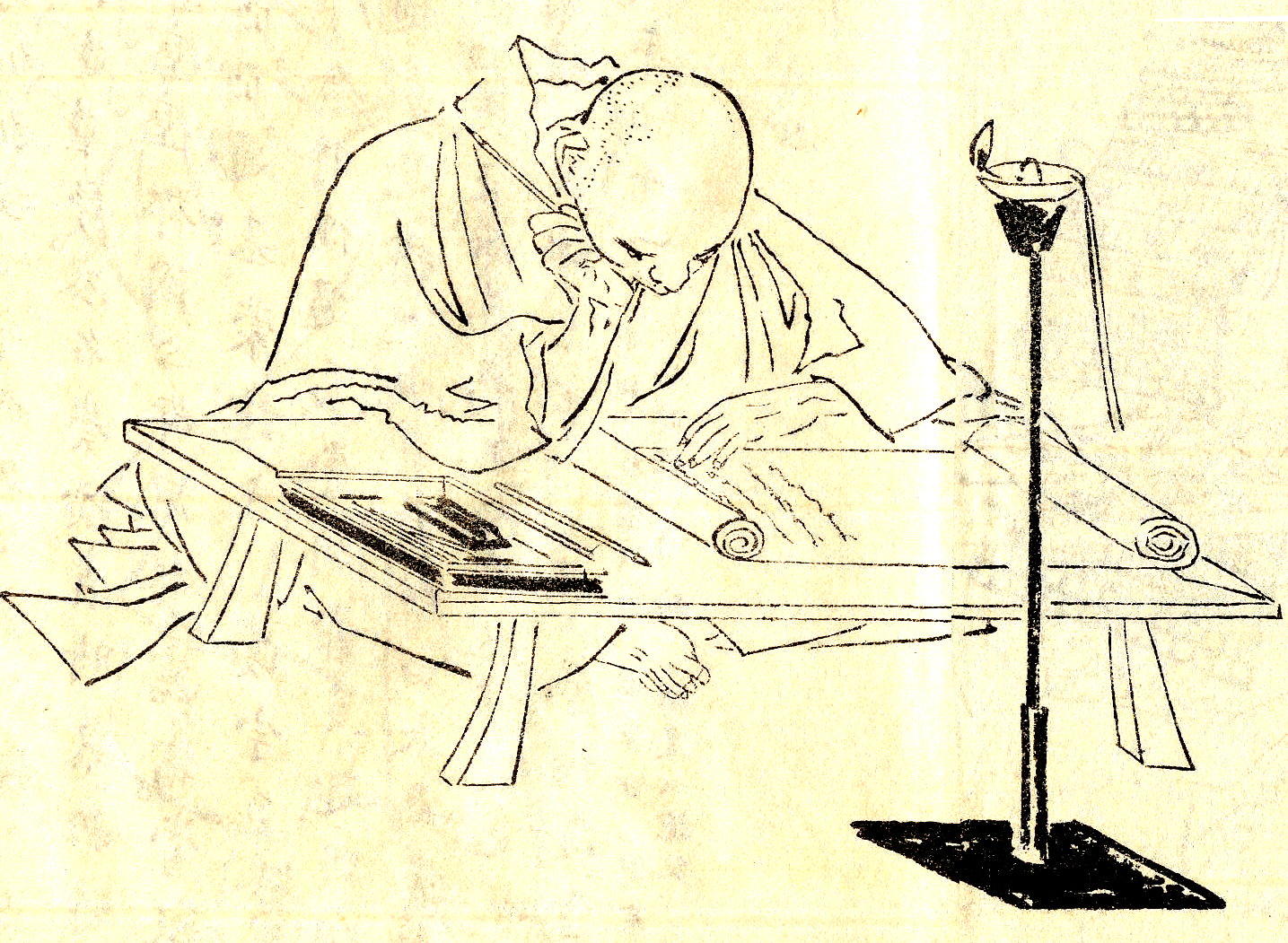Josida Kenkó: Idézetek angolul
“What a wonderfully unhurried feeling it is to live even even a single year in perfect serenity.”
Essays in Idleness (1967 Columbia University Press, Trns: Donald Keene)
Kontextus: If man were never to fade away like the dews of Adashino never to vanish like the smoke over Toribeyama, but lingered on forever in the world, how things would lose their power to move us! The most precious thing in life is its uncertainty. Consider living creatures- none lives so long a man. The May fly waits not for the evening, the summer cicada knows neither spring nor autumn. What a wonderfully unhurried feeling it is to live even even a single year in perfect serenity.
38
Essays in Idleness (1967 Columbia University Press, Trns: Donald Keene)
Kontextus: One would like to leave behind a glorious reputation for surpassing wisdom and character, but careful reflection will show that what we mean by love of a glorious reputation is delight in the approbation of others. Neither those who praise nor those who abuse last for long, and the people who have heard their reports are like likely to depart the world as quickly. Before whom then should we feel ashamed? By whom should we wish to be appreciated? Fame, moreover inspires backbiting. It does no good whatsoever to have one's name survive. A craving after fame is next foolish.
“The most precious thing in life is its uncertainty.”
Essays in Idleness (1967 Columbia University Press, Trns: Donald Keene)
Kontextus: If man were never to fade away like the dews of Adashino never to vanish like the smoke over Toribeyama, but lingered on forever in the world, how things would lose their power to move us! The most precious thing in life is its uncertainty. Consider living creatures- none lives so long a man. The May fly waits not for the evening, the summer cicada knows neither spring nor autumn. What a wonderfully unhurried feeling it is to live even even a single year in perfect serenity.
74
Essays in Idleness (1967 Columbia University Press, Trns: Donald Keene)
“The truly enlightened man has no learning, no virtue, no accomplishments, no fame.”
38
Essays in Idleness (1967 Columbia University Press, Trns: Donald Keene)
13
Essays in Idleness (1967 Columbia University Press, Trns: Donald Keene)
72
Essays in Idleness (1967 Columbia University Press, Trns: Donald Keene)
Forrás: Tsurezure-Gusa (Essays in Idleness), p. 93
22
Essays in Idleness (1967 Columbia University Press, Trns: Donald Keene)
Tsurezure-Gusa (Essays in Idleness)
Tsurezure-Gusa (Essays in Idleness)
i.e., religion
Tsurezure-Gusa (Essays in Idleness)
“All is unreality. Nothing is worth discussing, worth desiring.”
38
Essays in Idleness (1967 Columbia University Press, Trns: Donald Keene)
73
Essays in Idleness (1967 Columbia University Press, Trns: Donald Keene)
“He is of low understanding who spends a whole life irked by common worldly matters.”
Tsurezure-Gusa (Essays in Idleness)
78
Essays in Idleness (1967 Columbia University Press, Trns: Donald Keene)
18
Essays in Idleness (1967 Columbia University Press, Trns: Donald Keene)
“Even a false imitation of wisdom must be reckoned as wisdom.”
Forrás: Tsurezure-Gusa (Essays in Idleness), p. 85
38
Essays in Idleness (1967 Columbia University Press, Trns: Donald Keene)
155b
Tsurezure-Gusa (Essays in Idleness)
97
Essays in Idleness (1967 Columbia University Press, Trns: Donald Keene)
73
Essays in Idleness (1967 Columbia University Press, Trns: Donald Keene)
“The truth is at the beginning of anything and its end are alike touching.”
Tsurezure-Gusa (Essays in Idleness)
“Why is it so hard to do a thing Now, at the moment when one thinks of it.”
Forrás: Tsurezure-Gusa (Essays in Idleness), p. 92
